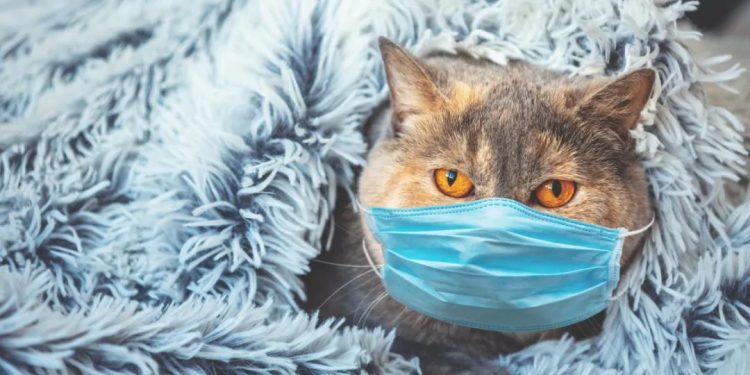There have been reports of pets (including cats and dogs) contracting the new coronavirus in countries around the world, mostly after close contact with patients. It is possible for a person to transmit COVID-19 to pets through close contact, but the risk of pets transmitting COVID-19 to humans is low. Pets can become seriously ill from COVID-19, but this is extremely rare.
1. What are the ways to prevent pets from contracting the new coronavirus?
●Avoid unnecessary contact between pets and others or other animals outside the household.
●Keep pets at a safe distance from stray cats and dogs.
●Do not feed stray cats, dogs or touch their feces.
● When you take your pet to a place where it may be exposed to the new coronavirus, please weigh it and use your best judgment.
● Pay attention to hand washing.
● Regularly clean items such as animal collars, leashes or harnesses and food bowls.

Please do not do the following actions, which may harm pets:
✘ Wear a mask for pets
✘ Wipe down or bathe pets with chemical disinfectants, alcohol, hydrogen peroxide, or other products such as hand sanitizer, cleaning wipes, or other industrial or surface cleaners. There is no evidence that the new coronavirus can be transmitted to humans through the skin, fur or hair of pets. If hand sanitizer gets on your pet’s skin or fur, immediately rinse or wipe your pet with water.
Contact your veterinarian immediately if your pet has ingested hand sanitizer (such as by chewing on the bottle) or shows signs of illness after use.
2. What should a pet owner do if they are infected with the new coronavirus?
If a pet owner has COVID-19 (whether suspected or confirmed by testing), they should avoid contact with pets or other animals, just as they would with other people, including petting, snuggling, kissing, licking, sharing food and sleeping on the same bed.
Most pets infected with COVID-19 become infected after close contact with a patient, and pets may experience fever, cough, difficulty breathing or shortness of breath, lethargy (abnormal lack of energy or slowness of movement), sneezing, runny nose, Discharge, vomiting or diarrhea, if symptoms are severe, contact a veterinarian.
At present, various cities have pet care centers for COVID-19 quarantined personnel, but there are still many problems in practice, such as how to send pets to the care centers, the need to formulate pet transfer procedures and isolation management plans, and the need for local governments to formulate better pets Epidemic prevention policy.




















